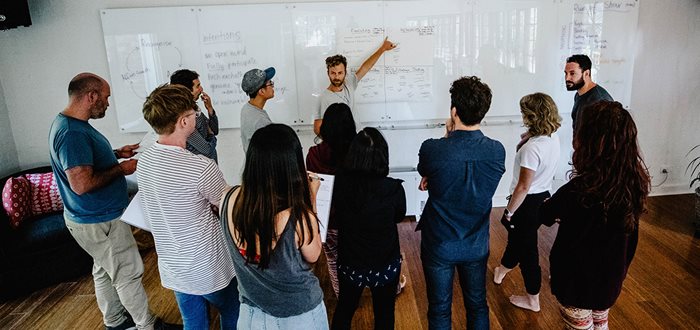Making Business More Inclusive
Building a business requires vision, resilience, and support — especially for entrepreneurs with disability. While many self-employed Australians face the usual hurdles of running a business, individuals living with disability often encounter additional social and environmental barriers that can make entrepreneurship more challenging.
Recognising these unique challenges, Impact Co., a leading social enterprise consultancy supporting marginalised communities, launched The Good Incubator (TGI) — a pioneering initiative designed to help people with disability in Victoria start and scale their own businesses.
Supporting Disability-Led Start-Ups in Victoria
Established three years ago, The Good Incubator offers free business development programs and workshops specifically tailored to the needs of small business owners with disability. From business planning and marketing to capital raising and networking, TGI equips participants with practical tools to grow sustainable and impactful enterprises.
The program is co-designed with input from people with disability, ensuring that it remains inclusive, relevant and effective in building both skills and confidence.
Workplace Flexibility Drives Disability Entrepreneurship
According to the Australian Bureau of Statistics, people with disability have higher rates of self-employment than those without. Pre-COVID data revealed that 13% of people with disability are self-employed, compared to 10% of the general population.
The 2024 Entrepreneurs with Disability Report found that key drivers for disability entrepreneurship include:
- Flexible working arrangements
- Greater income potential
- Acknowledgement of support needs
- A desire to create social change
- Improved job satisfaction
Overcoming Barriers to Inclusive Business Ownership
TGI Program Manager Jess Barbizzi notes that while the benefits are clear, significant barriers still prevent many Australians with disability from pursuing self-employment. These include:
- Limited access to capital
- A lack of confidence due to past discrimination
- Gaps in business knowledge and networks
- Concerns about economic sustainability
To combat this, TGI emphasises not only business skills but also the development of resilience, confidence, and self-leadership — qualities that can be transformative for people navigating the business world with a disability.
Real Stories of Success
The Good Incubator has already helped launch a diverse range of disability-led enterprises, including:
- Gecko Traxx – a company producing off-road and beach wheelchairs
- Ally Assist – a therapy assistant directory
- Carl Ride – an accessible disability transport service
- Reach and Match – educational play mats promoting braille literacy
Recent incubatees include Phoebe Howlett, who is developing an eco-friendly deodorant while living with postural orthostatic tachycardia syndrome, and Michael Tarulli, a former police officer turned adaptive rock climbing gym founder after losing the use of his legs.
What’s Next for The Good Incubator?
Currently funded by Launch Victoria and the Department of Health and Human Services, TGI delivers a comprehensive nine-week program for eligible participants at no cost. However, future expansion relies on securing further funding to reach even more aspiring entrepreneurs, including those in regional and rural communities.
While COVID-19 created challenges, it also offered unexpected benefits. By shifting to accessible online delivery, TGI has been able to connect with individuals who may have previously missed out due to location, family responsibilities or health-related limitations.




